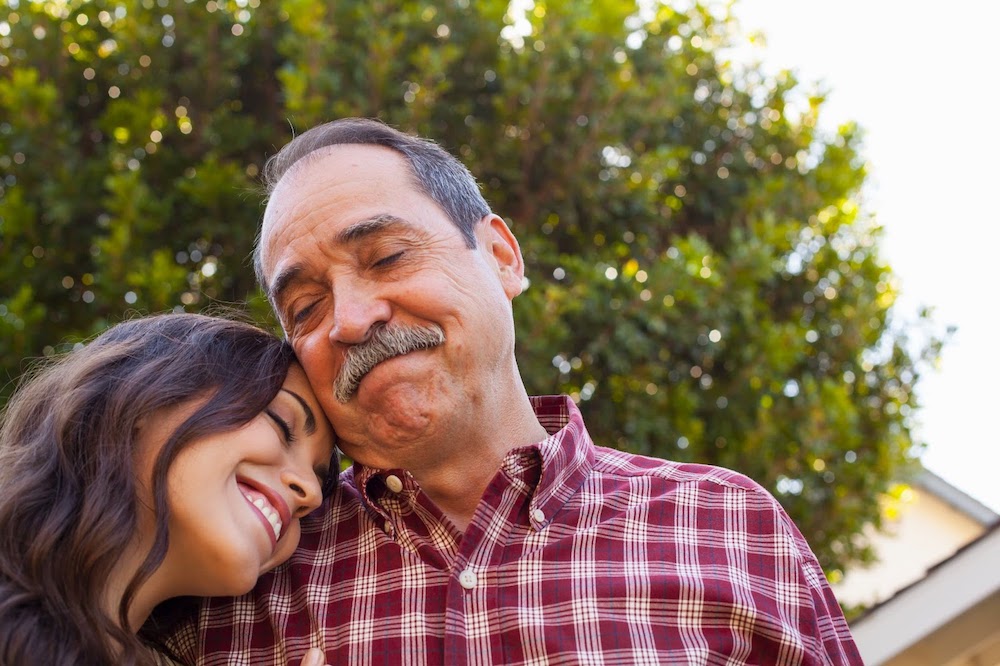Facing a life-limiting illness is a tough experience — both for patients and their loved ones. The goal of hospice is to provide support, comfort, and dignity during this process. But many patients and families feel so overwhelmed that they aren’t even sure which questions to ask. As you enter the hospice journey, it’s important to understand the patient’s care plan, to feel confident that day-to-day care and emergencies are properly handled, and that the patient and family get the support they need.
Here are ten questions you can ask your hospice nurse to get the answers you need.
How Your Hospice Nurse Can Help You Understand the Care Plan
A patient’s hospice care plan is the strategy to meet their individual needs. It includes things like pain medications and symptom management, daily personal care, emotional and/or spiritual care, and respect for their wishes.
1. What is our loved one’s care plan?
This question is short, sweet, and to the point. A quality hospice provider (like Envision Hospice) will explain a patient’s care plan in clear, simple terms to help you understand and feel confident that your loved one is receiving appropriate care.
Your hospice nurse should be able to give you a breakdown of the patient’s individualized care plan — including the main goals (like pain management, controlling symptoms), specific interventions (like medications and therapies), and what you can expect in terms of day-to-day care.
There’s no such thing as a one-size-fits-all care plan, so a comprehensive care plan should be tailored to an individual patient’s specific needs and condition.
2. How often do you review and update our loved one’s care plan?
As a patient’s condition progresses, their care plan should adjust to meet their needs. Based on feedback from the patient, medical staff, and family, those changes should be reviewed regularly — usually every week or two. Here at Envision Hospice, the whole team (including doctors, nurses, patients, and family) is involved in these updates. If there are any big health changes or major medical events, we review the care plan right away to make sure it still meets the patient’s needs.

What To Ask Your Hospice Nurse About Managing Day-to-Day Care and Emergencies
It’s important to understand what’s involved in a patient’s day-to-day hospice care, as well as the plan for emergencies. This information helps you make sure your loved one is comfortable and getting the best care.
Your hospice nurse can help you understand daily care tasks like giving meds, the patient’s personal care, and symptoms to watch for. Having a clear plan and knowing who to call during emergencies helps you respond quickly and confidently.
Asking these questions can give you peace of mind and create a more informed and supportive environment for patients and loved ones:
3. How will you manage the patient’s pain and symptoms?
A hospice care plan should include pain management strategies. These might include medications, integrative therapy services (like massage, heat therapy, and acupuncture), and ongoing pain assessments. A patient’s individualized plan should also manage other common symptoms like anxiety, nausea, and shortness of breath.
4. If the pain or symptoms get worse, what should we do?
When a patient’s pain or symptoms worsen, it’s important to know what to do and who to call. Hospice providers (like Envision Hospice) should have a 24/7 hotline or on-call nurse for situations like these. It’s also important to know how quickly you can expect a response, as well as immediate steps families can take to provide relief while they’re waiting for professional help.
5. What should we know about handling and giving out medication?
It’s vital to understand medication safety guidelines and emergency instructions. Your hospice nurse should explain information about giving and storing medications — and who should administer that treatment. They can also provide info about keeping accurate logs of dosages and any special instructions for specific meds.
6. What are side effects to look out for (and how do we deal with them)?
The hospice team should help patients and families understand the side effects of prescribed medications, as well as symptoms to monitor. Your hospice team will also provide instructions about what to do if side effects occur — and let you know the plan they’ll follow (like adjusting dosages) if that happens.
7. What counts as an emergency, and what should we do if one happens?
It’s vital for patients and families to understand what to expect as a patient’s condition progresses and what situations require urgent attention. Your hospice nurse should define what qualifies as an emergency (like difficulty breathing, sudden confusion, or severe pain). Patients and loved ones need a detailed emergency plan with information like:
- Who they should contact
- Ways to help while they wait for assistance
- Location of emergency supplies
The Role of Your Hospice Nurse: Empowering Families
The goal of hospice is to provide care, support, and dignity for patients with life-limiting illnesses. Families and loved ones are a critical part of a patient’s emotional and physical well-being. As a loved one, you might ask their hospice nurse these questions:
8. How can we help with the care process?
In hospice care, families often want to know how they can help care for their loved one (bathing, dressing, and other personal care tasks). It’s important to understand a patient’s wishes and their care plan. Sometimes, patients prefer having a hospice nurse (instead of a family member) handle their hygiene needs to preserve their dignity. Other times, assisting with these tasks is a meaningful way to connect. Whatever a patient’s needs and wishes, there are ways families can be present for their loved one and provide emotional support.
Your hospice nurse should help your family understand specific ways they can assist based on the patient’s care needs and wishes.
9. Do you have training or resources to help us care for our loved one?
The right resources and training can help families feel less anxious and more empowered about their loved one’s care. Envision Hospice offers support and educational materials to help families know what to expect during hospice. Your hospice nurse can also help families understand the patient’s care plan (how and when medication is given, symptoms to watch for, and what to do in emergencies).
Throughout the process, we want to make sure patients and families feel supported and confident that they’re receiving the best care.
10. How will hospice respect my loved one’s final wishes?
A key part of hospice care is respecting a patient’s dignity and wishes. This is another reason that an individualized care plan is so important. To respect a patient’s wishes, the whole team (hospice staff, patient, and families) should know what they are! By creating a plan, the patient, family, and hospice team document living wills, advance directives, spiritual care, and other important information.
When there’s a clearly defined plan of care, the hospice nurse (and the rest of the team) can implement the right medical treatment, spiritual care, and other end-of-life preferences.

Empowering Communication With Your Hospice Nurse
Hospice can feel overwhelming, but information is empowering. Knowing which questions to ask your hospice nurse helps you to be informed and involved in care. And when you partner with a provider like Envision Hospice, you have a team to provide the guidance, support, and compassion you need during this time. Remember: You’re not alone. We’re here for you.

